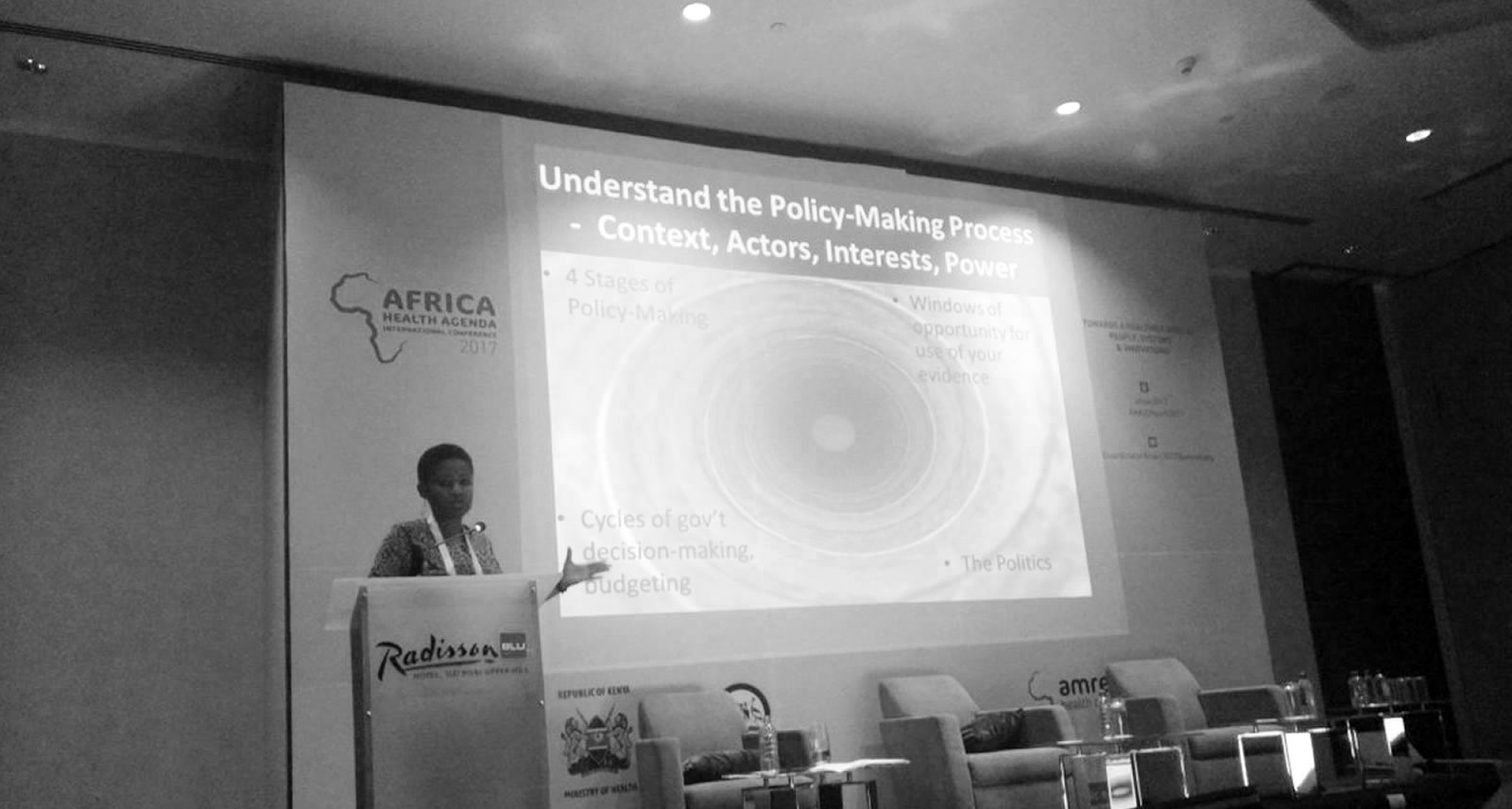News

On 9th March 2017, the African Institute for Development Policy (AFIDEP) led a workshop on translating evidence into policy targeting researchers, policymakers and programme implementers in the health sector. The workshop, which was held at the Radisson Blu Hotel in Nairobi, Kenya, was part of the Africa Health Agenda International Conference hosted by Amref Health Africa, which took place from 7th to 9th March 2017.
The objective of the workshop was to enhance the appreciation, commitment and skills of researchers, policymakers and programme implementers in the translation of knowledge into policy and practice in order to ensure more effective policies and programmes.
Some of the issues emerging from the discussions included reflections from participants on their experience in translating evidence into policy. Participants noted that communicating evidence is one of the critical elements of successful translation of evidence into policy. Further, it was noted that researchers should be cognisant of the fact that not all evidence is relevant to policymaking. However, it is critical that researchers seek to generate evidence that addresses existing gaps in policies, or foster the formulation of new policies, in order to ensure that development challenges are tackled effectively. Participants also noted that while evidence may not feed into the policymaking process, it can aid in setting the agenda for development conversations.
Based on the feedback from the workshop participants, researchers, policymakers and programme implementers can greatly benefit from continuous skills building on translating evidence into policy in order to ensure that decision-making is evidence-informed.
The Conference whose theme was “Towards a Healthier Africa: People, Systems and Innovations”, sought to unveil the key role played by scientific research and its contributions to the achievement of the sustainable development goals (SDGs). The Conference also sought to provide an opportunity for researchers, scholars and industry leaders to assess and come to an understanding of what universal actions are needed to reverse the health status of the most fragile and marginalised populations in Africa, in order to ensure vibrant and healthy communities across the continent.
Related Posts





